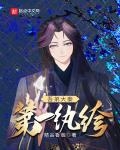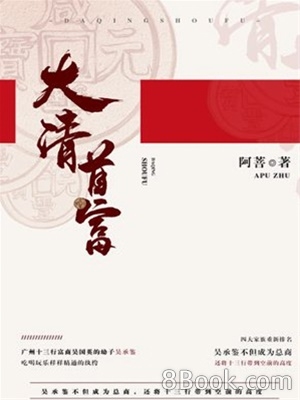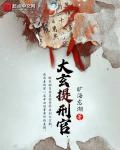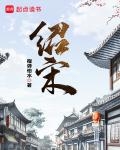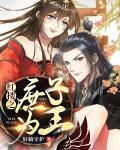Chapter 404: Heroes of the World (VIII)
Before Yu Qian walked into the meeting room of the Military Commission, he knew that many people would never understand Huo Chong's ideas. In fact, all the old brothers had already sat down in a row, and the military leaders headed by Lei Hu and Hu Yue hosted this semi-formal question-and-answer session.
"Why do you want to go to the South China Sea?" Lei Hu read out the first question on several sheets of paper with the questions listed.
Yu Qian answered calmly: "Your Majesty believes that if we don't go, it will be too late."
"Is it worth sending the main force of the navy to save the Spaniards?"
"It's not to save the Spaniards, but for ourselves. It's not impossible to do it later, but it's better to do it sooner rather than later."
Lei Hu frowned. Although Huo Chong's body had recovered, he was no longer as strong as before and could not discuss with the Ministry of War all night long. At this time, Yu Qian conveyed Huo Chong's meaning, but it didn't feel so powerful.
But these words were indeed something that only Huo Chong could say. They sounded reasonable, yet also very strange.
Of course, Huo Chong's orders were more outrageous than this one more than once or twice. Each time, they were a huge success. So after Lei Hu asked for a while, he simply stopped reading from the paper, because Lei Hu felt that Huo Chong would not give in. So he changed to Lei Hu's own question: "Yu Qian, His Majesty decided to let you go. Do you know what His Majesty told us?"
Yu Qian answered straightforwardly: "Brothers, at your age, when you come to the hot South China Sea, can people from the north and the Central Plains like you bear it? Although I am from Shandong, I am young and in good health. I can withstand the change of environment better."
There was a sigh among the old brothers. Although no one was convinced, they really couldn't refuse such a reason. Indeed, Huo Chong was already a sixty-year-old man, but everyone was not young anymore. There were many people in their thirties, forties, and even fifties.
For ordinary people, the earth will cover their chests after they turn 40. Even Guangdong’s climate is considered ridiculous, so why would someone of this age go to the South China Sea, which is much closer to the equator than Guangdong? Senior military officers who have received sufficient geography education are not willing to brag about it.
Knowing that Huo Chong had made up his mind, there was nothing they could do. The commander-in-chief of the Western Expedition Army could be Yu Qian or not. Huo Chong was the only commander-in-chief of the Huaxia Army. Since the commander-in-chief had given the order, and the reason was not unreasonable, there seemed to be no other way but to obey.
Yu Qian certainly has the advantage of being young, but as Huo Chong's last disciple, he was taught by Qian Qing. It is not easy to find such a young man with such a natural advantage.
After the questioning of Yu Qian was over, everyone had to choose again. In the end, Marshal Lei Hu from the old brothers was chosen and became the commander of the Western Expedition Army.
Originally Lei Hu was the commander of the Northern Army, but now Hu Yue was selected as the commander and Jing Keshou as the chief of staff. They crossed the narrow estuary of the Bohai Sea and launched an attack on the Liaodong Peninsula.
General Yu Qian also began to prepare. The expeditionary army mainly recruited soldiers from the south, and selected those soldiers who were obviously more adaptable to the hot and humid climate in the south. After reorganization, the troops first arrived in Xuzhou and then rushed to Lianyungang. When Yu Qian arrived in Lianyungang, he saw many people building dams on the seashore. The port is located next to a mountain. When the governor of Jiangsu came to greet him, he couldn't help but sighed: "General Yu, I have only heard about the vicissitudes of life in the first half of my life. I didn't expect to see it with my own eyes. Look at this mountain. It is said that when the Yellow River did not burst its dike and flow south, this mountain was in the sea. Because of siltation, it was connected to the land. Now the Yellow River is flowing north, the land along the coast of Jiangsu has collapsed, and this mountain has been getting closer to the sea year by year. If the dam cannot be repaired quickly, this mountain will have to be soaked in the sea in the future."
The Jiangsu governor's sigh surprised Yu Qian. It was the first time he heard that he could actually see the changes in the world with his own eyes.
When we got to the mountain, we saw that a small part of the mountain was already in contact with the sea, and the muddy yellow waves hit the rocks, making a deafening sound. The muddiness was entirely caused by the soil on the mountainside being swept away by the sea.
With solid rocks deep into the seabed, it is easy to build a port here. At least the draft is not a problem.
Yu Qian asked the troops to rest and train in long-distance sailing knowledge, while waiting for the fleet to join them.
The fleet also arrived at the agreed time. The South Sea Fleet and the North Sea Fleet arrived one after another. On the flagship of the North Sea Fleet, Yu Qian recognized a familiar figure at a glance. When the man came down the gangplank to the shore, Yu Qian hurried forward and saluted, "Your Majesty the King of Qi."
After Qian Qing returned the gift, he stepped forward and patted Yu Qian on the shoulder, "Sir, you can't come in person, I'll take you there."
Yu Qian was adopted by Huo Chong, and her parents had long gone. Yu Qian was in no mood to look for them. In Yu Qian's heart, Huo Chong was her father, and senior sister Qian Qing was her sister and mother.
Before seeing Qian Qing, Yu Qian was actually a little sad. Seeing that he was about to go on a long journey, but his relatives were not around. It was really hard. At this time, seeing Qian Qing coming to see him off, Yu Qian felt that he had nothing to worry about.
After giving Qian Qing another salute, Yu Qian replied, "Sister, please take good care of the master. When I return victorious, I will give all the islands in the South China Sea to the master as a gift."
"A disciple of the master should have such spirit. When you come back, the master will be well again. Then I will go with the master to pick you up. You must take care of yourself when you travel thousands of miles to the south this time."
"Yes, sister, we will definitely meet again." After Yu Qian said this, she saluted Qian Qing again.
A long line of people boarded the ship, and Yu Qian also boarded the warship with the team. Looking down from the side of the ship, Qian Qing was dressed in military uniform, with a thin and straight figure, and he was waving goodbye to the Chinese Expeditionary Force who were about to set off.
The officers and soldiers and the people on the shore also waved goodbye, and blessings of "be well", "take care", and "return victorious soon" were heard from the crowd.
The soldiers who were going on a long journey also waved goodbye to the crowds who were seeing them off, and many of them couldn't hold back their tears.
The whistle sounded, the paddle wheel turned, the ship trembled slightly, and then began to slowly leave the port driven by mechanical power.
After leaving Lianyungang, the expeditionary force headed south to Fujian, and then reached Penghu with difficulty, using up almost all the power of the paddle wheels, and then arrived in Taiwan. After a few days of rest, they headed south and finally arrived in Luzon, which the Chinese army had not reached for hundreds of years.
After wandering on the sea for so long, the troops thought they could land quickly. Unexpectedly, the Spanish governor did not allow the Chinese army to land. The governor made excuses and even suggested that the Chinese army use the fleet's guns to bombard the British and Dutch fortresses.
Such a reaction made everyone very angry. The Ministry of Rites held a meeting. Although everyone was angry at the meeting, after listening to Yu Qian mentioning the content that had been discussed before the troops were dispatched, everyone calmed down a lot.
Before the Spanish seized Luzon, European countries believed that Luzon was actually an overseas province of the Ming Dynasty. After Spain seized Luzon at the end of the Ming Dynasty, it felt very proud and boasted that Spain could conquer the Ming Dynasty.
It seems that even now, the Spaniards are still extremely wary of Luzon's former master. This also shows that the South China Sea, which originally belonged to the Ming Dynasty, should have belonged to China.
"We have been in the South China Sea for thousands of years, but these outsiders think we are outsiders!" The Chief of Staff made a concluding speech.
Everyone thinks this evaluation is ridiculous, but it is the real thinking of the Spanish people.
The head of the logistics department, who was also a member of the Ministry of Rites, said angrily, "We also need to quickly establish our base in the South China Sea."
"Your Majesty wants us to rebuild the Ming Dynasty's Old Port Xuanwei Office and control the Strait of Malacca. The situation in Luzon is already troublesome enough, and allowing more Westerners to come to the South China Sea will only cause more trouble." Yu Qian replied.
Before they set out, they still couldn't understand Huo Chong's overly ambitious strategic design. Now that they were challenged by reality, they felt that this strategy was not just a whim of Huo Chong. In this vast ocean, if you don't have a foothold, you have to drift on the sea. With so many people crowded on the boat, there was really no room to stretch your arms and legs.
Fortunately, the Spanish governor was also under great pressure, and after the Chinese army threatened that "if you don't let us go ashore, we can only go back", the governor reluctantly agreed. However, the Spanish defenders were facing a great enemy, as if the Chinese army was a more terrible threat than the British and Dutch coalition forces.
The Chinese army decided to fight a quick battle and prepare for a siege immediately after landing. This time, the Chinese fleet prepared the latest artillery for the siege. The inner wall of these artillery is made of high-toughness steel, and eight rifling grooves are processed on the inner wall. The shells fired are no longer spherical shells, but conical shells.
Since the conical shell is entrained by the gunpowder gas guided by the rifling during its flight in the barrel, and rotates around its front and rear axis, the shell flies in a very stable orbit. When it lands, the tip touches the ground first, and the shear igniter inside directly detonates the large amount of explosives in the shell, causing a very fierce area of damage.
The British and Dutch coalition forces took a posture of holding out to the end, and gathered their forces in the hastily built fortress. It was just within the range of the Chinese army's artillery bombardment. There were continuous explosions in the fortress, and smoke and fire rose up. The entire fortress was in a hellish scene with mountains shaking and earth trembling.
The bombardment lasted for a whole day. Yu Qian ordered an ambush on the road where the foreign devils might retreat. Not only could the foreign devils not withstand such a bombardment, even the Chinese army would not be able to withstand it.
Sure enough, as night fell, the coalition forces escaped from the dilapidated fortress and tried to escape to the seaside.
When the mines were triggered, the road behind the coalition forces was cut off, and they were completely trapped in a deadly situation. When daybreak came, the fortress was captured first. The Chinese army launched an attack on the remnants of the coalition forces.
Perhaps they were left with no other options, so these foreigners surrendered readily.
After the interrogation, Yu Qian got a confession that surprised him. It turned out that the reason why the British and Dutch coalition forces attacked Luzon was not what Yu Qian thought, that is, the fleets of the two countries operating in the South China Sea wanted to come to Luzon to plunder as pirates.
The attack was actually ordered by the British and Dutch authorities, who were thousands of miles away. Britain and the Netherlands wanted to completely cut off the trade line from China to Europe established by Spain, so they took advantage of the Austrian War to join the opposing side against France and Spain. Attacking Luzon was also an indispensable part of the war to cut off the maritime trade line.
Such a description actually coincided with Huo Chong's guess. Not only was Yu Qian very surprised, but the Chinese Expeditionary Force was also extremely surprised.
Luzon and the South China Sea are not far from China. At least compared with the distance from those European countries, the distance between China and the South China Sea is really not far.
If Emperor Huo Chong had not made a seemingly inhumane decision, the Chinese court would never have thought of sending troops to the South China Sea to recover the old territory.
However, European countries thousands of miles away have already been considering a grand strategy that takes the entire globe into account and have actually implemented such a strategy.
Such ambition, such courage, such fearlessness of death. If you hadn't seen it with your own eyes and heard it with your own eyes, you would never believe that not far from China, there is such a force that is constantly conquering, fighting, and competing in order to realize their ambition to dominate the earth.
Compared with these countries, China really lives too comfortably.
When the Southern Expedition Army received Huo Chong's order, they were inevitably a little afraid of the difficulties. After the Ministry of Rites took the opportunity to present the facts and reason, the troops' anxiety and even dissatisfaction dissipated for the most part.
The troops heading south understood that the enemy was not only at home, but also abroad. More importantly, the laziness of pursuing comfort was causing China to lose something that China itself had not noticed. Everyone once thought that the South China Sea was a remote and barren land. China did not go south only because it was unwilling to do so.
The situation here has proven that even if we rush here now, it might be a little late.
Five years, a full five years. The troops led by Admiral Yu Qian changed from the South China Sea Fleet to the Southern Army, and then to the South China Sea Theater.
Hard battles followed one after another. The British and Dutch coalition forces fought, lost, fought again, and lost again. But they never gave up.
At this time, the Manchus were driven out of Hunan, Sichuan, the Northwest, and outside the Great Wall by the Huaxia Army.
After the construction of the horse-drawn railway from Yanjing to Zhangjiakou was completed, the Chinese army finally gained a strong logistical line across the Yinshan Mountains and began to attack Mongolia. The Qing forces that had fled to Mongolia fled further north and west.
However, in the South China Sea, Britain and the Netherlands were still fighting. The number of soldiers who died in the South China Sea was even greater than those who died in the crusade against the Qing Dynasty. So much so that Lei Hu publicly questioned, "Don't Britain and the Netherlands take their lives seriously?"
In the report that Yu Qian saw, Huo Chong replied calmly: "This is the tradition of Europe. If human life is taken seriously, why would they cross tens of thousands of miles of ocean and run to the South China Sea? In a sense, this is also a kind of heroism. We cannot be overwhelmed by the enemy, but we must overwhelm the enemy. We Chinese certainly regard human life as human life, but we must never fear danger, but through scientific and democratic systems, mobilize subjective initiative and solve the enemy."
In November of the 11th year of the Chinese Republic, the remnants of the British and Dutch fleets passed by the square outside the Xuanwei Office, which was rebuilt on the site of the old port Xuanwei Office. Each army obediently placed their flags under the viewing platform.
Once the flag fell, it meant that the army had been destroyed. The British and Dutch coalition forces, which had been entangled with the Chinese South China Sea theater for five years, finally surrendered to the stronger and braver Chinese army.
According to the intelligence from Spain and France, the War for the Austrian Succession in Europe was drawing to a close, with Britain, the Netherlands, Russia and Austria defeated. Although the current king of Prussia, the fierce general known as Red Beard, repeatedly defected, he ultimately failed to change the situation.
The Spanish and French coalition forces equipped with Chinese muskets swept across Europe and established a glorious military feat for the two Bourbon kingdoms.
China's South China Sea has finally stabilized. In the future, we will open up the South China Sea so that no Westerners will be rampant here again.
Before the viewing ceremony was over, a communications officer came running over. When he got close to Yu Qian, he saw tears on his face. If there were no surrendered foreigners around, he would have burst into tears.
Yu Qian was shocked and snatched the paper from the communication officer. After taking a look, Yu Qian felt a black screen in front of his eyes and almost fainted. The chief of staff next to him quickly took the imperial edict and saw the first sentence read: " Your Majesty passed away on the tenth day of the tenth month... "
The surrendered remnants of the British-Dutch Allied Forces saw that the Chinese officers who had been so arrogant and complacent not long ago suddenly fell into grief. Some burst into tears, while others stamped their feet and beat their chests.
Seeing the enemy in such pain, the remnants of the surrendered army were surprised and happy. However, no one thought of taking the opportunity to resist. The number of Chinese troops far exceeded that of the remnants of the surrendered army. More importantly, in the years of war, these Chinese soldiers showed courage and perseverance that overwhelmed the British and Dutch coalition forces, and showed amazing learning ability.
The growth of the Chinese navy can be felt in every battle. If they had not been completely desperate, the Anglo-Dutch coalition would not have surrendered.
Although the Chinese soldiers were in grief, as long as they did not kill the prisoners, it would have nothing to do with the remnants of the Anglo-Dutch forces.
That night, all the officers and soldiers of the Nanhai Jiugang Xuanwei Office heard the news, as well as the imperial edict and the will.
The imperial edict announced that the founding emperor of the Huaxia Dynasty, Huo Chong, had died of illness... In his will, Emperor Huo Chong announced that the revolution of the Huaxia Dynasty was a revolution because it overturned the old system in which the country belonged to a certain family. Huo Chong was also one of the vast working people of the Huaxia Dynasty.
Any emperor of the Huaxia Dynasty will also abide by this foundation of the country, fight for the interests of the people of the Huaxia Dynasty, and continue to follow the revolutionary path of liberation, science and democracy.
As for his posthumous affairs, Huo Chong announced that the crown prince would ascend the throne and the queen, Qian Qing, the Prince of Qi, would serve as regent. In order to change the customs, the mausoleum would no longer be renovated. Huo Chong's body was cremated and buried deep under a green area set up to protect the environment. There were no burial items except a simple urn. There was no mausoleum either.
" Although the Qing dynasty has been defeated, the old Chinese land has not yet been completely recovered. Productivity has not yet reached the point where everyone can develop freely. The Ministry of Rites, the imperial court, and all Chinese people should not be complacent and stick to the old ways. They should unite around the imperial court with the Ministry of Rites at its core, and continue unswervingly along the path pioneered by our predecessors until we are completely liberated. "
After the will, the edict of Her Majesty the Queen Qian Qing, who was the regent, was read out. In addition to telling about Huo Chong's great feat of expelling the Tartars and restoring China, Qian Qing announced to the world that an imperial mausoleum would be built for Huo Chong. Although there would be no accompanying gifts, Huo Chong's body would rest in peace in the imperial mausoleum.
The sad Yu Qian did not feel that there was anything wrong with this order that violated Huo Chong's will. If Qian Qing really carried out Huo Chong's will, it would be equivalent to depriving Yu Qian of the opportunity to see Huo Chong for the last time.
In the order not to be announced to the South China Sea Theater, Yu Qian was told to return to Beijing immediately. Yu Qian wished she could grow wings and fly back to Huo Chong, crying to his body about her sadness for not being able to see him for the last time.
The chief of staff wiped away his tears and asked Yu Qian with a choked voice, "Commander, you also have to write something to inform the war zone."
"I can't think of anything at this moment. I just want to find a place to cry." Yu Qian said while wiping her tears.
"Commander, just write whatever you think of. It's not appropriate for others to write about our war zone," the chief of staff continued to advise.
Yu Qian felt that this was true, but he couldn't think of anything else. Finally, he picked up the pen and wrote down the purest thoughts in his mind at the moment, "My emperor, my teacher."
While the South China Sea war zone was in deep sorrow, Jiangnan had already returned to normal life. Huo Chong's will and Qian Qing's edict both emphasized that the people did not need to mourn. Weddings and funerals were not prohibited. However, no entertainment activities were allowed within three days.
Life in Jiangnan was not affected. However, the scholars and the old gentry and nobles in Jiangnan believed that a nationwide rebellion would occur, and they waited anxiously for a long time, but only recently they were able to calm down in disappointment.
There was no rebellion, nor was there any sign of a counterattack by the Manchus who had fled to an unknown place.
Chen Mingtai has retired. Although he did not make money as a salt official, he was not poor and had an official pension. Chen Mingtai did not like a luxurious life. He met friends every day and ate normally. Because his disciple Gao Pang became the prime minister, he lived a life of talking and laughing with great scholars and interacting with ordinary people after retirement.
"Mr. Chen, the late emperor said that he had launched a revolution. Did he really do that? It's still the same old family-run system." At the dinner table, someone was venting his dissatisfaction under the influence of alcohol.
Chen Mingtai replied calmly: "In the previous dynasty, the gentry governed the people, and the court governed the gentry. Where are the gentry in this dynasty?"
The person who spoke changed his expression immediately, but Chen Mingtai continued to eat the glutinous rice lotus root as if he didn't see it. Although he was very dissatisfied with Huo Chong, Chen Mingtai looked down on the howling of those losers.
A man from one of the four great families in Jiangnan heard what Chen Mingtai said and praised him, "That's right. The late emperor never lied, which is especially respectable. If it weren't for the late emperor's wisdom and bravery, and the fall of the Qing Dynasty, we should have replaced those Shandong country bumpkins. It's not wrong to say that the current situation is a success."
The man who had mocked Huo Chong before was so angry that his face twisted when he heard that even his fellow gentry who was not an official said this.
Chen Mingtai picked up his glass and said, "Well said. This is seeking truth from facts."
The brother from the four great families of Jiangnan also had a glass of wine. After drinking it, he continued, "But we also have to thank the late emperor. If he hadn't explained it clearly, I'm afraid we wouldn't know where our strengths lie. He who knows others is wise, and he who knows himself is enlightened. The late emperor said that going from a tenant to a landed peasant is a transition recognized by normal people. Going from a peasant to a landlord is also a transition recognized by normal people. In the final analysis, mastering capital and mastering more capital can increase capital by absorbing labor. This is in line with the inevitable path for people to gain self-identity within the group."
Everyone was puzzled when they heard this. The brother who was being mocked couldn't help but taunt him, "There's no land left, what are you still bragging about?"
The brother who had been making an impassioned speech waved his hands. "If the late emperor could live another hundred years, he might be able to set an example for the people of the world and let them know what to choose and what to do after they are no longer poor. After all, if people want to make progress, they need someone to teach them and be able to afford to lose. But people are people, and they will die one day. It is not unfair for us to lose to a great hero like the late emperor. There are many heroes in the world, but it may take hundreds of years for someone like the late emperor to appear. When there are no heroes, young men become famous. Since we have learned so many theories from the late emperor, we should work hard to become stronger."
At this point, the brother raised his glass and said, "Looking at the world of the future, it will definitely be a world of capital. Come, everyone, let's toast to the late emperor!"
Chen Mingtai's eyes lit up and he picked up his glass. Everyone at the table picked up their glasses sooner or later.
Seeing that everyone had raised their glasses, Chen Mingtai gave a toast, "The world of the future will surely be a world of capital. We gentry will throw away our burdens and go into battle lightly. This new world will surely have a place for us. To the late emperor, and to all of you. Cheers!"
(End of the book)

